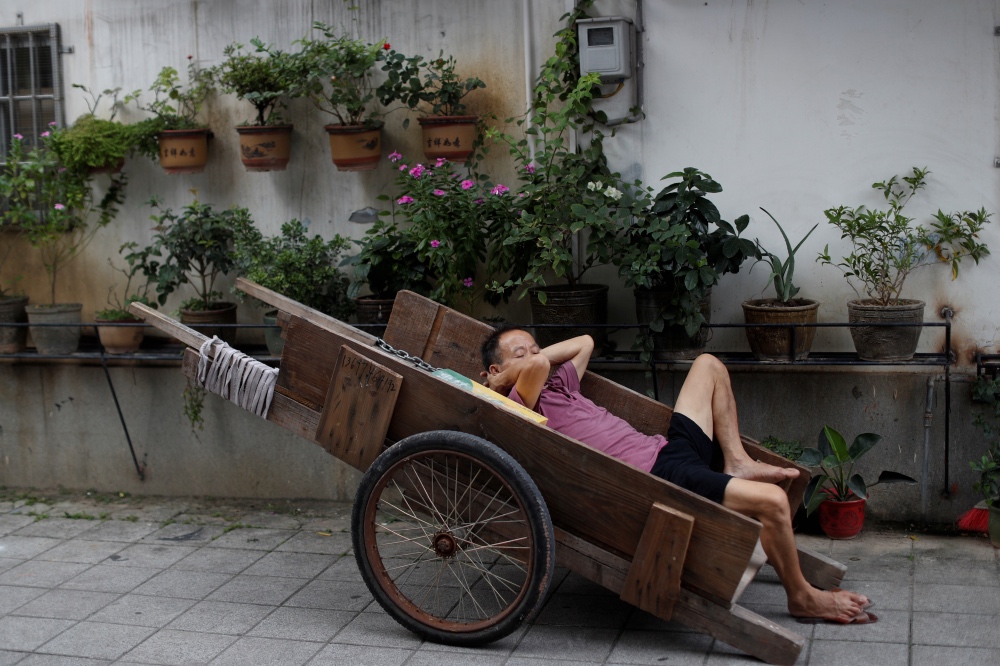Penang, Malaysia
Thomson Reuters Foundation
Many of Asia’s booming cities are failing to preserve their cultural heritage and risk losing the traditional knowledge that is crucial for promoting inclusiveness, sustainability and resilience, urban experts warned on Friday.
This year, a majority of Asia-Pacific’s population for the first time became urban, with more than half the population living in its rapidly expanding cities, according to a United Nations report published this week.

A man sleeps in a cart near a market in the traditional neighbourhood of Yuexiu in Guanghzou, China, on 8th September. PICTURE: Reuters/Jorge Silva
But rising pressure on land for office blocks and metro rail networks has led to the razing of old buildings and informal settlements, and the loss of traditional skills, said Montira Horayangura Unakul at UNESCO, the UN’s cultural agency.
“In many cities, heritage is still viewed as a fringe issue, but it helps drive not just the development of crafts and tourism, but also broader economic, social and environmental development,” she said.
“Heritage is not just about preserving a site, but also cultural practices, traditional knowledge, social values, economic principles – everything that is above and below the ground,” she said at a UN urban conference in Penang.
There are 193 cities and historic sites within urban areas among nearly 900 UNESCO world heritage sites.
Safeguarding cultural heritage is one of the 17 Sustainable Development Goals adopted by UN member nations to tackle such issues as hunger, gender equality and climate change by 2030.
It is also a part of the so-called New Urban Agenda, a 20-year roadmap for sustainable cities adopted in 2016.
But informal settlements, which can also include urban villages in countries like Indonesia and Malaysia, are not regarded as heritage, said Elisa Sutanudjaja at the Rujak Center for Urban Studies, a Jakarta thinktank.
Dozens of Indonesian “kampungs”, which are close-knit traditional villages, have been razed in Jakarta and their residents evicted or resettled, as authorities in the capital grapple with congestion, overcrowding and pollution.
“Cities are a combination of formality and informality, and the kampungs are a buffer zone that enables the transition from rural to urban life. They should be a part of urban planning,” Sutanudjaja told the Thomson Reuters Foundation.
Residents, many of whom have lived there for generations, have valuable knowledge of disaster preparedness, flood mitigation and other risks linked to climate change, she said.
“Kampungs are living spaces with problems with sanitation and housing that reduce their resilience, so we also don’t want to romanticise them. But demolition is not an answer,” she said.
There is also risk attached to success: George Town on Penang island, off Malaysia’s west coast, is a UNESCO world heritage site that is hugely popular with tourists that many residents blame for congestion and higher rents.
Under-pressure cities need a conservation approach when modernising, which includes residents to keeps alive traditional knowledge and cultures such as foods, clothing and music, said Saswat Bandyopadhyay, an urban planning professor at CEPT University in Ahmedabad, India.
“The loss of heritage is irreversible – once it’s gone, it’s gone. So we must be doing everything we can to preserve it.”






